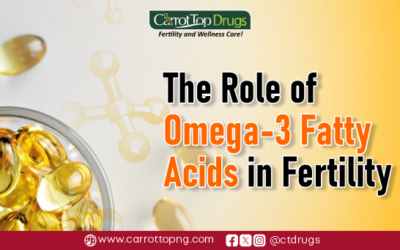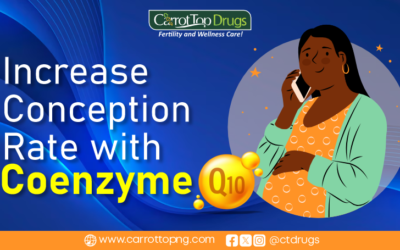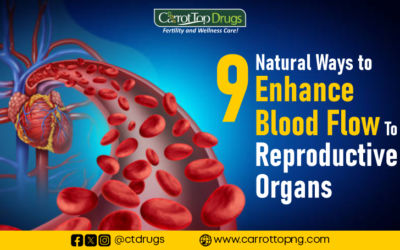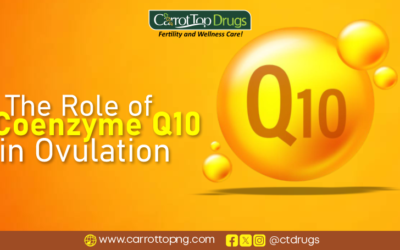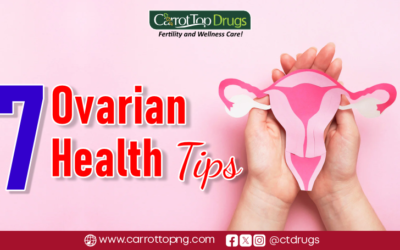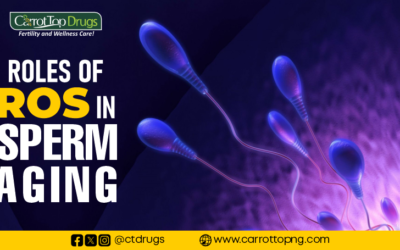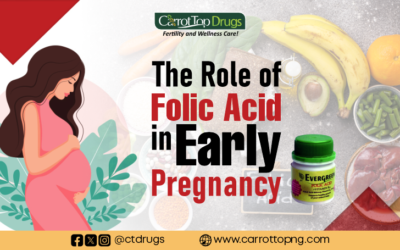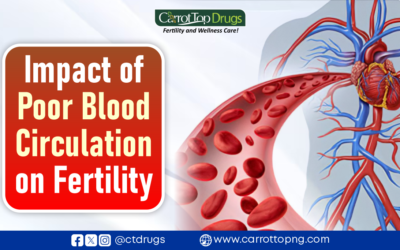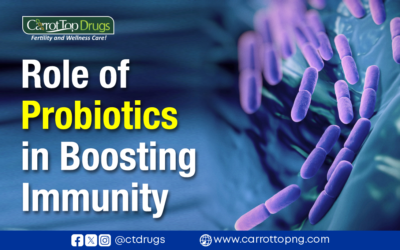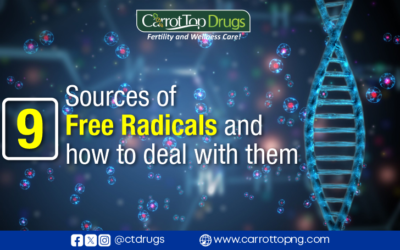Introduction
In our modern world today, there is a lot of exposure to chemicals of all kinds. While most of these substances pose little risk to healthy adult humans, they can have a much more significant impact on the success of fertility in both men and women. The danger of chemical exposure is especially acute for people who are trying to start a family. Luckily, there are some things you can do to protect yourself and your partner from the potentially negative effects of these chemicals. These are Endocrine Disrupting Chemicals.
We know that so many things disrupt our ability to get pregnant, from stress and past hormone imbalances to certain medications and infections. Some chemicals also mess with our ability to conceive by interfering with the endocrine system. This means there are things we can avoid or limit in our daily lives that will help us have healthier pregnancies when the time comes.
In this article, we would look into some endocrine disrupting chemicals that you should know and how to protect yourself from them.
What are Endocrine Disrupting chemicals?
Endocrine disrupting chemicals (EDCs) are substances that can alter the normal functioning of the human endocrine system. Many household products can contain EDCs, including detergents, hand sanitizers, cleaning agents, and carpet cleaners. Personal care products like shampoos, conditioners, hair colorings, cosmetics, and body washes contain Endocrine disrupting chemicals. They may be in the air, soil, water source, food, etc. These substances are from several sources, for this reason, the exposure of people to them daily is massive.
Some of these EDCs often mimic the way hormones act. This is one of the means through which they trick the system and hence block the natural hormones from performing their functions. Other endocrine disrupting chemicals on the other hand affect the body by affecting the concentration of the hormones in the blood. They may affect the metabolism of the hormones (formation, storage, or breakdown) in the body. Another subtle function of EDCs is that they affect our sensitivity to these hormones.
EDCs disrupt several hormones from performing their functions. For this reason, they may cause a lot of health issues. One of such health issues is fertility. In this article, we would examine the negative effects of these endocrine disrupting chemicals. Some of them are alterations in sperm quality and fertility, abnormalities in sex organs, endometriosis, early puberty, altered nervous system function, immune function, certain cancers, respiratory problems, metabolic issues, diabetes, obesity, cardiovascular problems, growth, neurological and learning disabilities, and more.
The Common Endocrine Disrupting Chemicals
There are many endocrine disrupting chemicals. But in this article, we would examine the common ones.
1. BPA
The first of the endocrine disrupting chemicals that we would discuss is BPA. BPA is short for Bisphenol A (BPA). Polycarbonate plastics, epoxy resins, dental sealants, personal hygiene products, and some industrial materials are some examples of products that contain BPA.
Polycarbonate plastics are often in use in the making of containers that store food substances like water or beverages. While, epoxy resins are more in use in the lining of metal plastic containers like food cans, bottle tops, or even water supply lines.
This endocrine disrupting chemical can seep into the food from the containers, especially when heated. BPA enters the body through the skin, inhalation, or ingestion. It can accumulate in several body tissues.
BPA affects the endocrine pathway because it has the following properties: weak estrogenic property, antiandrogenic property, and antithyroid activities.
BPA is a xenoestrogen, that exhibits estrogen-mimicking, hormone-like properties which affect the normal function of estrogen in the woman.
Due to its negative effects, it may cause:
- testicular dysgenesis syndrome,
- cryptorchidism,
- cancers,
- decreased fertility in males,
- and loss of follicles in females.
2. Phthalates
Phthalates are chemicals that are added to plastics to improve their durability. Because of their usefulness, phthalates are produced in large quantities and are commonly referred to as plasticizers. They can be found in many everyday products.. Examples of such products are our personal care products like soaps, shampoos, or hair sprays. They are also found in polyvinyl chloride plastics which are used in packaging or even in medical tubings.
The issue with phthalates is that because of their wide range of usage, foods, and drinks come in contact with them. We ingest them with our food while in some other cases, we inhale them.
Phthalates are responsible for several reproductive health problems both in children and adults. It could cause alteration in puberty, and the development of testicular dysgenesis syndrome.
Phthalates can change the release of hypothalamic or pituitary hormones. It can also affect the receptors of hormones in the cells and thereby hinders the function of the hormones.
3. Lead
Another of the endocrine disrupting chemicals that affect fertility is lead. It is a heavy metal and it has a wide range of uses. We use lead in some kinds of batteries (lead-acid batteries), in paints, in a printing press, in water pipes, as a coloring agent, as shielding materials, as a smelter, etc.
This EDC could also be found in dust, soil, drinking water, air, imported candies or foods, imported food in cans, firearms with lead bullets, car batteries, radiators, some inks, etc.
It is a toxic chemical that can affect several human organs. Exposure to lead may result in infertility because it may affect
- libido,
- sperm count,
- motility of sperm cells,
- sperm viability,
- the elevation number of abnormal sperm cells,
- chromosomal damage,
- abnormal prostatic function,
- changes in serum testosterone,
- decreased volume of ejaculation,
- prolonged latency of semen melting,
- retarded sperm activity, and
- semen fluid density, etc.
It is also associated with hormonal issues in both males and females. In females, it affects menstruation, infertility, miscarriage, early membrane rupture, preeclampsia, pregnancy hypertension, and also preterm birth, hormonal problems, etc. It is also associated with birth defects, lead toxicity affects children much more; hence it’s best not to expose a child to it.
Furthermore, there are several pieces of evidence that support the fact that lead can cross the placenta. This adversely affects fetal viability and early childhood development.
4. Pesticides
These are chemicals that are designed to boost agricultural productivity by destroying pests. These pests may be insects, rodents, weeds, and even disease-causing organisms like fungi and bacteria.
Some pesticides are designed to destroy a wide spectrum of pests while others are organism-specific. As good as these pesticides are, they play a dangerous role in reproductive health.
Some examples of such pesticides are:
- Organochlorine examples of which include dichlorodiphenyltrichloroethane (DDT) and its metabolites, polychlorinated biphenyls (PCBs), and chlordane.
- The organochlorine compounds most extensively studied have been dichlorodiphenyltrichloroethane (DDT) and its metabolites, and polychlorinated biphenyls (PCBs).
- DDT has antimalarial properties and hence it is used in some parts of Africa and Asia to tackle malaria. Since it’s an EDC, DDT has both estrogenic and antiandrogenic properties. This makes it able to mimic the function of estrogen in women and also hinders the function of androgens in men. It has been revealed that in women it could affect the length of the cycle.
- PCBs are used as dielectric fluid, fluid retardants, ink solvents, and plasticizers. It’s also banned in most countries. It is known to cause hormonal issues and maldevelopment of urogenital organs.
In many nations of the world, there is a ban on pesticides like DDT and PCBs. But, they or their metabolites may be present in other nations of the world.
Harvard T.H. Chan School of Public Health reveals that taking food that has been exposed to a high amount of pesticides may reduce the chances of conception in women. Cryptorchidism, hypospadias, subfertility, testicular germ-cell tumor, and testicular dysgenesis syndrome (TDS) could result from exposure to these pesticides during fetal life.
JAMA Internal Medicine published a study that revealed that women who consume food exposed to high pesticide residue were 18% less likely to get pregnant when compared to women without exposure.
5. Dioxin
Dioxin is one of the endocrine disrupting chemicals that can affect fertility. Its chemical name is 2,3,7,8-Tetrachlorodibenzo-p-dioxin (TCDD) or dioxin for short. This chemical is a carcinogen and an environmental contaminant. It accumulates in the environment and resists metabolism when ingested.
Though dioxin has been regulated, yet, it is still found in human lipid reserves. Especially those individuals who live in industrial areas.
Dioxin interferes with endocrine function and has been linked with women’s infertility. It can cross the placenta and accumulate in the uterus. This affects the fetus adversely.
How to Prevent Yourself from Endocrine Disrupting Chemicals
Endocrine disrupting chemicals (EDCs) are chemicals that can interfere with the normal functioning of the endocrine system, which is responsible for regulating hormones in the body. Exposure to EDCs can lead to a range of health issues, including reproductive problems, developmental delays, and even cancer. In this article, we will explore ways to prevent yourself from EDCs.
1. Understand EDCs and their sources
To protect yourself from EDCs, it is essential to understand what they are and where they come from. EDCs are found in a variety of products, including plastics, food containers, cleaning products, personal care products, and pesticides.
2. Choose safer products
One of the easiest ways to reduce your exposure to EDCs is to choose safer products. Look for products with the label “EDC-free” or “phthalate-free.” When selecting personal care products, choose products with natural ingredients and avoid products that contain synthetic fragrances.
3. Eat a healthy diet
A healthy diet can help reduce your exposure to EDCs. Choose organic fruits and vegetables, and avoid processed foods that contain additives and preservatives. Additionally, limit your intake of canned foods and beverages, as they often contain BPA, a known EDC.
4. Use safer household products
Household cleaning products can contain EDCs. Choose products with the label “green” or “eco-friendly.” You can also make your cleaning products using natural ingredients like vinegar and baking soda.
5. Avoid using pesticides
Pesticides can contain EDCs. When possible, avoid using pesticides in your home and garden. Instead, use natural pest control methods like companion planting and beneficial insects.
6. Filter your drinking water
EDCs can be found in drinking water. Consider using a water filter to remove EDCs and other contaminants from your tap water.
7. Avoid plastics
Plastics can contain EDCs, so it’s best to avoid using them when possible. Choose glass or stainless steel containers for food and beverages. Avoid using plastic wrap and plastic containers to store food.
8. Choose natural clothing
Clothing can also contain EDCs. Choose natural fibers like cotton, wool, and silk. Avoid synthetic materials like polyester, which can contain EDCs.
9. Practice safe food storage
When storing food, use glass or stainless steel containers instead of plastic. Avoid heating food in plastic containers, as this can cause EDCs to leach into your food.
10. Be mindful of your environment
EDCs ma in the air and soil. Be mindful of your environment and avoid areas that are heavily polluted. Consider using air filters in your home to reduce your exposure to EDCs.
Conclusion
In conclusion, protecting yourself from EDCs requires being mindful of the products you use and the environment around you. Choose safer products, eat a healthy diet, use safer household products, and avoid using pesticides. Additionally, filter your drinking water, avoid plastics, choose natural clothing, and practice safe food storage. By taking these steps, you can reduce your exposure to EDCs and protect your health.
We can not totally avoid some endocrine disrupting chemicals. Getting antioxidants is another good course of action. Some of our fertility products like EVERGREEN FORMULAR FOR MEN and EVERGREEN FORMULAR FOR WOMEN contain a lot of powerful antioxidants that can stop these chemicals from damaging the reproductive system.
FAQs
Q. What are endocrine disrupting chemicals?
A. Endocrine disrupting chemicals (EDCs) are chemicals that can interfere with the normal functioning of the endocrine system, which is responsible for regulating hormones in the body.
Q. What products contain EDCs?
A. Plastics, food containers, cleaning products, personal care products, and pesticides are products that contain endocrine disrupting chemicals.
Q. What is the best way to reduce exposure to EDC?
A. The best way to reduce exposure to EDCs is to choose safer products, eat a healthy diet, use safer household products, and avoid using pesticides. Additionally, filter your drinking water, avoid plastics, choose natural clothing, and practice safe food storage.
Q. Are EDCs harmful to our health?
A. Yes, exposure to EDCs can lead to a range of health issues, including reproductive problems, developmental delays, and even cancer.
Q. How can I identify products that are EDC-free?
A. Look for products with the label “EDC-free” or “phthalate-free.” When selecting personal care products, choose products that have natural ingredients and avoid products that contain synthetic fragrances.



